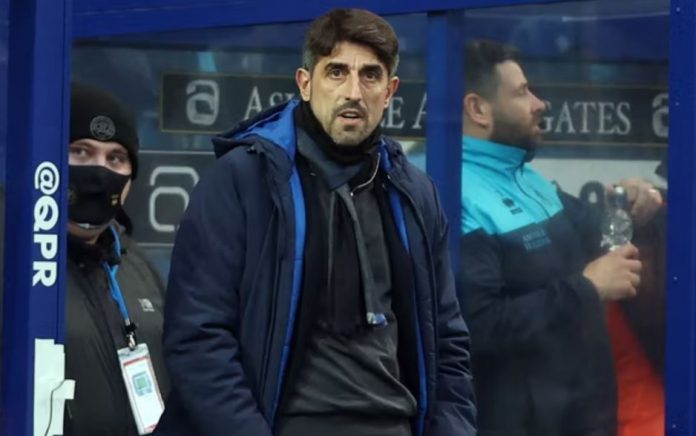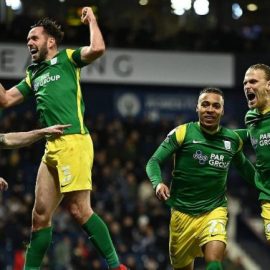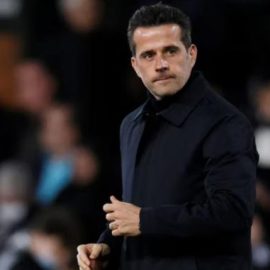Football, in recent years, has hardly been the sanest of sports but even by recent standards Manchester City’s £100m bid for Kaka has seen the sport reach new levels of absurdity, even if the player himself eventually rejected the offer.
But this isn’t just about paying a man half a million a week to kick a ball around, ridiculous as that notion is. No matter how much tutting and appeals to go back to the good old days (whenever they were) of the sport, the bid for Kaka is part of a wider feeling that football has got to the point where even ardent fans start questioning what the game has become.
Last week, while discussing the bid, a friend of mine commented that he was “Mystified as to how exceeding an entirely arbitrary transfer fee figure now means football sold it soul, as opposed to this time last week.”
He’s right of course. God knows exactly if football ever had a soul, but if it did, it’s been slowly eroding over the years. It’s difficult to pinpoint why, but here’s a few reasons as to why football’s making itself very hard to give your undying love to these days.
Game 39
In picking a place to start, Game 39 is as good a topic as any – the point where those in charge of the Premier League essentially issued a statement to fans that, in a concise version, said “Screw you”.
The longer version was more akin to “Screw you. We’ve milked you as dry as possible, and now we’re going on the pastures new where there are less cynical fans willing to spend even more money than you chumps. Oh, and while you’re at it, we’re going to create an unworkable format to shoehorn this cash cow into. You’re not important any more, but we’d still like to take as much of your money as possible. Just in case there was any we missed.”
When the plans were Game 39 were released a little over a year ago there was a collective inhaling of breath. Perhaps inspired by the success of the NFL’s visit to Wembley, the Premier League announced their overseas expansion plans with no little fanfare. Or, it seems, consultation with any relevant parties involved.
That may have been their mistake – no preliminary discussions or softening up of fans through a series of dripped stories so the plans didn’t seem as shocking or come as quite a surprise. As it was, the announcements angered just about everybody, from FA heads around the globe, governing bodies, and, over here, fans. Such was the scale of opposition, it appeared the plans would die as rapidly as they were announced.
At this stage, it’s worth noting that the Premier League has done a lot to target other markets and there are plenty of successes here. It’s also logical that the league should target Asian markets as a ground for expansion; there’s nothing inherently wrong with this, just good businesses sense.
But the idea of disrupting a season to fly footballers half the way around the globe for games that many ordinary fans could not and would not go to seemed beyond the pale. Rivalries were put aside as fans from across the country joined together to oppose the game, seeing it for what it was: a naked money-making opportunity that had nothing to do with the fans who’d stuck with their clubs through thick and thin.
It’s all gone quiet on Game 39, but don’t think the Premier League have forgotten about it. Even after the outcry, the Premier League’s chief executive, Richard Scudamore, was still talking up the proposal. Then there’s been the charm offensive to other national FAs to win them over.
Take Mohammed bin Hammam, president of the Asian Football Confederation and a vocal critic of Game 39. When it was first announced, he accused the Premier League of “putting money before responsibility and dignity.”
In October, after a few chats with Scudamore, he’d changed his tune, saying: “If they want to play matches in Asia they are welcome, and we should know what the benefits will be to all our stakeholders.
“I see they are responsible people and I do not see it as all being about money and greed. When we talked, I saw that Richard Scudamore does really care about football and fans and the national associations, and that touched us a lot.”
That the idea of Game 39 was even seriously considered is one thing. That, even after widespread opposition from footballing bodies and fans, it still continues to bubble along is a sign that fans has ceased to matter. If the Premier League could uproot the Big Four to the Far East for the sake of a few dollars more, it would probably do so without a second thought.
To our loyal customers… sorry fans
While we’re on the topic of money and fans, now seems to be an appropriate time to bring in the whole matchday experience and the cost of supporting a club. When Roy Keane launched into his prawn sandwich rant, it struck an easily identifiable chord. Today, it seems those prawns have grown even bigger.
Since the start of the Premier League, watching a football game has changed. No surprise in some respects – every sport evolves, and this is only to be expected, encouraged even. But not when this change involves paying an extortionate amount of money to watch a lifeless game in a soulless identikit stadium.
Back in 1990, The Taylor Report concluded that “it should be possible for seating to be £6”. Allowing for inflation, today you should be paying around £10. Today, £30 is a reasonably cheap ticket for a Premier League game, as ticket prices have risen by about 500% in 18 years. At £94, Arsenal have the dubious distinction of offering the most expensive seats in the Premier League.
But, if anything, prices are just as bad if not worse in the lower league. Take Gillingham from League Two, for example, where your average non-concessions supporter can expect to pay between £19 and £25, which is roughly the same as it’ll cost you to watch Hull City in the Premier League.
Dropping down into Conference territory, a seat at Stevenage will set you back £15, terraces £12, while Oxford charge between £11 and £19.50 and, one league below that, St. Albans City charge £10 to sit and £12 to stand. As a comparison, Bayern Munich charge £13.50 to stand for Category A games.
I’ve nothing against the clubs listed above, they’ve been picked at random. But it’s still an example of how costs of football have risen dramatically in recent years (and this is before we take into account travel, food, programmes and other matchday expenses).
And none of them are as bad as QPR, who brazenly raised their prices to £50 for a Category A Championship game earlier this season, and £40 for travelling supporters, while season tickets at Loftus Road for 2008/09 rose by nearly 50%.
Stadium Arcadium
But it’s not just pricing the ordinary or casual fan out of football, or causing the fanatic to remortgage their house to pay to support their club. As part of the drive to modernise football, much of the atmosphere has been lost.
No one would deny that in 1990 football needed the change. It had an image problem thanks to hooliganism throughout the 80s, and was reeling from disasters such as Hillsborough, Heysel and Bradford. Change was absolutely vital for the future of the sport.
And change it has, plenty of it for the better. The game has become more professional, to the benefit of players, clubs and spectators. Violence, while not eradicated, is much rarer, while the casual racism of the terraces has been left in the 80s. Football is much more welcoming to families. In short, it’s picked itself up no end since the Taylor Report.
But something has been lost along the way. Gone are the atmospheric stadiums that created one heck of a noise on matchday. Gone are the likes of St. Mary’s, Roker Park, Maine Road and even Highbury. Hello out of town stadium with little or no atmosphere.
I’ve been told to sit down at more stadiums than I’d care to remember – from Fulham to Rushden and Diamonds. I’ve also been told to be quiet in more stadiums than I’d care to remember. Singing, it appears, it also on its way out. As is atmosphere. Some clubs have no resorted to handed out ruffled pieces of cardboard of match days – which make a strange whistle-clack sound – in an effort to generate more noise. Noise that they’ve often done their best to kill in the first place.
Two of the worst offenders for this are the Emirates and the new Wembley. Both are impressive grounds that leave you awestruck the first time you visit them. Both are on par with a morgue, atmosphere-wise.
At Arsenal, the whole matchday experience is weirdly surreal; like gliding through a commercial for the perfect stadium. Even the cheap seats are so comfy you half expect to find a button on the arm-rest to summon a waiter. The Emirates is, without a doubt, the quietest place I have ever watched a game of football. It’s still a huge improvement on Wembley, though, which just feels like a particularly uninspiring airport terminal, complete with the hideously overpriced food.
Money, money, money
In 2007, the Premier League negotiated a £600m deal for overseas TV rights. This was on top of the £1.7 billion Sky and Setanta were paying for the domestic rights, and was on top of the £400m for internet and mobile rights.
Eighteen months later Halifax Town were issued with a winding-up order over an unpaid £8,000 debt. They were eventually liquidated with debts of £2.1m. In the current market, that would buy you around 1/8th of Kenwyne Jones.
The demise of the Shaymen may be unrelated to the mind-boggling sums of money thrown at The Greatest League In The World. But it does illustrate the gulf in cash between the top and the bottom of football.
Trevor Francis’ £1m transfer now seems like a drop in the ocean compared to where we’re at at the moment: a world where £16m isn’t enough for the aforementioned Kenwyne Jones, a decent, yet average, Premier League striker, but enough to buy you one Darren Bent.
And yet football, never one for restraint or, when it comes to business practices, sanity, presses on regardless. Liverpool waved their arms frantically to attract the attention of any passing suitor and eventually hoped into bed with a couple of bickering, broke Americans.
Still, they’re probably thankful their flirtation with serial human rights abuser Thaksin Shinawatra never came to anything as he pitched up at Manchester City. Had the current owners not stepped in, City’s future would have been a lot less secure. As it is, they’re now flashing around sums of cash that are utterly crazy as they attempt to lure the world’s superstars to a club that’ battling against relegation. In the process, they’ve become a difficult team to love (I won’t even get onto the words of Gary Cook here).
West Ham, meanwhile, are struggling with an owner who has seen the majority of his personal fortune wiped out by the credit crunch and are probably more at risk from administration than any other Premier League club. Even Chelsea are reluctant to employ their usual tactic of throwing vast sums of money at any player they fancy.
And so it continues throughout the Premier League. Hideously large amounts of money, the likes of which the average fan can barely comprehend, while footballers earn wages that the average fan certainly can’t relate to.
Then you’ve got the Championship, which is fast becoming an equally insane league. There’s the aforementioned QPR, owned by a couple of millionaires and a billionaire. Then there’s teams like Burnley, who’ve put out a cry for their own billionaire to come forward and invest in the club. Or Cardiff, who despite having a mountain of debt, are still pushing for the Premier League.
And at the bottom there’s the wreckage of ex-Premiership clubs who’ve seen their parachute payments run out, their financial woes increase and their side get steadily worse. Any one or more of Charlton, Southampton, Derby and Watford would be in League One next season.
Then below them there’s the wreckage of Leeds, slowly coming back to life, and former top-flight club Luton, who, barring a miracle, will be in the Conference next season. And below them are other clubs who’ve seen a mixture of bad management or wild overspending or both.
York City have just announced a loss or £413,000. Salisbury keep asking fans to put their hands in their pockets. Northwich have just been locked out of their ground. Weymouth have just hung on by the skin of their teeth. And Leigh Genesis proved, to nobody’s surprise, that no amount of marketing speak and vision compensates for ridiculous expenditure and a few hundred fans.
Football should not be about worrying if you have a club to support next week. It shouldn’t even be about fretting if you can afford to go to the game next week. But that’s what it’s become
But wait, there’s more
In the interests of length (he says full knowing how much has already been written), I’ll only give a passing mention to the following, which add to the feeling of disenchantment with the game.
There’s the FA Cup – still the greatest competition in the world, but not so great that Manchester United couldn’t take a sabbatical one year to have a kickabout in a pointless brainchild of Sepp Blatter.
It’s also a competition that, in recently years, had been criticised for becoming boringly predictable as a succession of the Big Four cued up for their go with the trophy. Yet the moment you actually got some genuine shocks, it was criticised precisely because none of the Big Four were in it and therefore irrelevant. The Portsmouth v Cardiff final may not have been a classic, but it was better than some of the tepid snoozefests of previous years.
In the other corner, you have the Champions League, complete with a bloated system that is hideously skewed in favour of the bigger clubs and doesn’t get going until midway through the season. In the meantime, these extra, pointless group stage games prove to be a nice earner for all those involved.
Then there’s the Big Four’s monopoly on the Champions League qualification spots that lead to an often depressingly predictable Premiership. Meanwhile, other Premiership fans look at these four and demand big money signings and instant success and get very angry when this isn’t forthcoming. Newcastle United are a prime example.
Then, elsewhere down the leagues, fans look at the Premier League and conclude billionaires, throwing vast amounts of money at the team, and sacking managers are they way forward. And so we move into a depressing downward spiral.
Lastly, I’ve not even touched on the story that led up to the formation of the MK Dons. Partly because, hopefully, they should have already popped into your head by now. But also because I’ll get even more depressed. Suffice to say, if you could pick one story that encapsulates everything that is wrong with English football, the MK Dons would be that story.
And breathe
Then again, football has always been slightly bonkers. Cash, bad owners and taking fans for granted have always been in the game at some point. Did a golden age of football ever exist? It depends on your reference point, but there’s still plenty of football history that’s often given a rough ride or ignored in the modern game (I’m looking at you, Tim Lovejoy). And that’s a shame.
But, despite all it’s faults, football is still easy to love. For all my complaints about the Premier League, this season has been absolutely fascinating to watch. The big clubs have been unpredictable, Aston Villa and Martin O’Neill have provided much-needed competition, Hull have been a breath of fresh air, and this season is as close as the Premier League has ever been.
Lower down, there’s hope in the shape of supporter-owned clubs like Stockport, Brentford, AFC Wimbledon and Exeter, who’ve all started to find their feet in recent years and earn promotion or, in the case of Brentford, push for it this season.
Then there’s the moments that humble you, like seeing fans of two rival clubs – Exeter and Torquay – come together to raise money for Chris Todd, the Gulls defender diagnosed with leukaemia.
Then there’s the match day itself. The excitement as you wake up. The expectation as you head to the ground. The shiver that goes down your spine every time the turnstiles come into view. The 90 minutes to fight for glory or failure. The emotional bond you form with your team and which never leaves you, no matter how far away you are from the hallowed turf of your chosen club.
This is football’s soul, it’s heartbeat. And nobody, from a £100m pound player, to a owner with more money than sense, to the men in suits plotting their latest money-making scheme, can ever take this away from us.
Add Sportslens to your Google News Feed!






